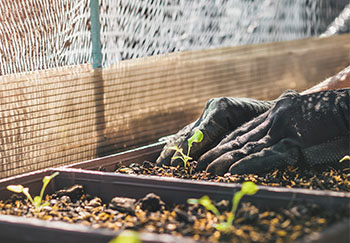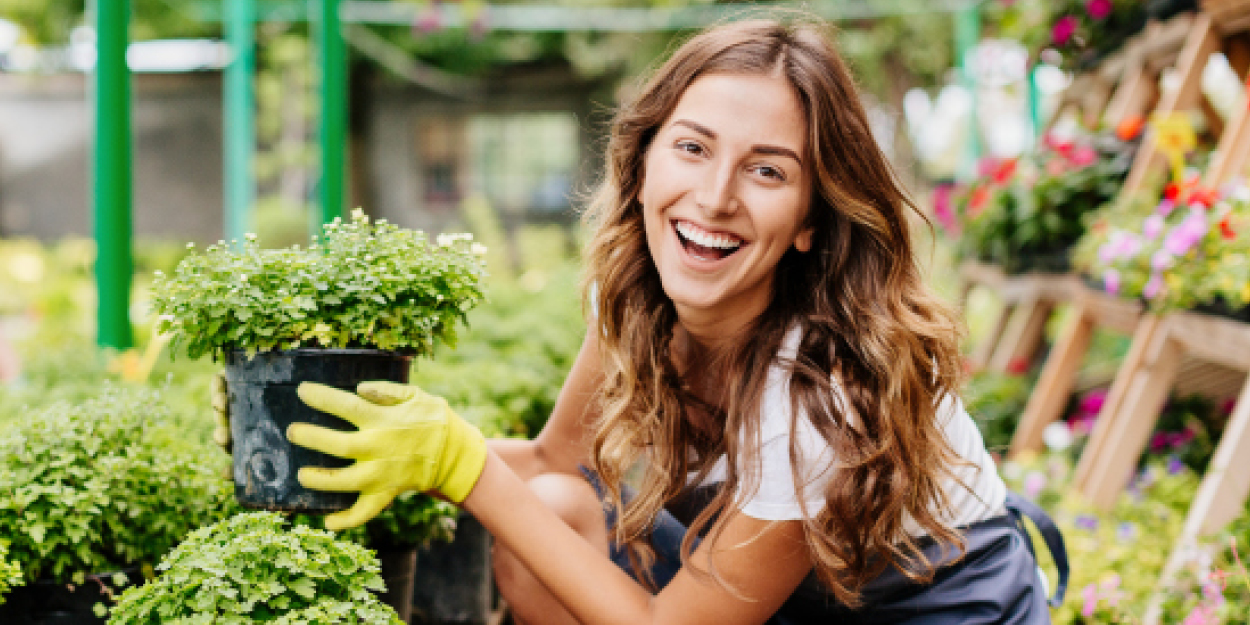Save Money by Growing Your Own Fruit, Veg & Herbs
May 10th, 2023 | Categories
There’s been a lot more discussion lately about self-sufficiency and producing more of our own fruit and vegetables using our gardens and outdoors spaces. It has been a growing trend over recent years but has come to the fore more now because of rising inflation which is pushing up the cost of our food shops. In fact, prices for groceries are at a 40-year high, not to mention there was a tomato shortage in supermarkets just a few months ago. However, buying fresh herbs – for example – regularly from any supermarket, was always the more expensive option. Over the course of a year, you’d be surprised what it could amount up to. Whereas you could grow some wonderful herbs in the garden in a bed or in pots, from seeds that cost up to a few pounds at most, and some with a little care come back year after year. Now that sounds pretty good, and much cheaper, right?
The good news is that you can do it! Growing your own herbs, fruit and vegetables is more than achievable for everyone, even if you are just starting out gardening or with the idea of growing something to eat. Growing the right ones for you can be a great way to save money on groceries and is easier than you may think. There are some start-up costs and an investment of time, but it is a more cost-effective solution and provides you with fresh produce that you can keep free from pesticides and other chemicals, not to mention the feeling of a job well done knowing you grew something yourself.
So, ready to be in the know? Here are some of the most popular and easiest to grow fruits, vegetables, and herbs that you can grow in your own garden.
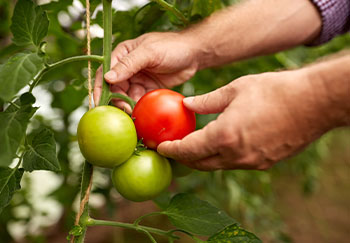
The Fruit, Vegetables & Herbs You Can Grow at Home to Save Money
This isn’t an extensive list of all the fruit, veg, and herbs you can grow in the garden, but is more of a mix of the most popular choices that will give you more of a return on investment, save you money, and grow your knowledge and enjoyment of gardening which we think you just can’t put a price on. Here’s our list with some extra information to help you along.
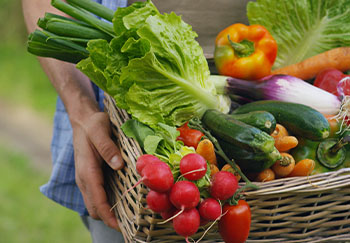
Salad Greens
All kinds of kale, lettuce, rocket, spinach, and watercress are very easy crops to grow, requiring minimal care. They be grown in containers or in the ground and can be harvested in weeks, and you can repeatedly sow throughout the growing season for a continuous supply. These are one of the best groups of edibles you can grow yourself at home in terms of cost-savings and a return on investment of time and a few pounds for seed packets. Think about how fast you can go through those £1 salad bags that are never the freshest at the best of times. This one is a no-brainer.
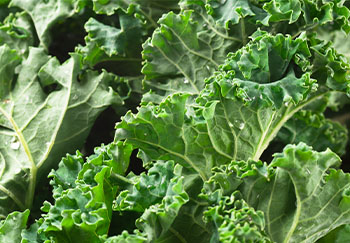
Herbs
Herbs similarly present excellent value for money in terms of what you can grow quickly and use from just a couple of plants versus the cost of continually buying fresh herbs from the supermarket. Whether you like basil, mint, thyme, rosemary, parsley, sage or you want a combination of them all, herbs are easy to grow, and don’t take up a lot of space whether grown in the ground, a raised bed, or containers. All can be grown from seed, or young plants purchased from garden centres, and depending on the type will be ready in weeks to a few months. When you get going you may wonder why you didn’t start growing herbs sooner. Another great quality of herbs like mint, rosemary, thyme and sage is that they will come back year after year with the right care, making your initial investment even more worthwhile. Just look after them in the winter. See our handy guide on growing your own herbs in the garden here.
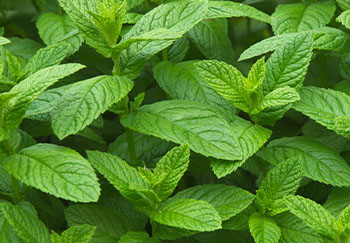
Tomatoes
Tomatoes are a staple in most households and can be grown easily in containers or in the ground. They do require plenty of sunlight and warmth, regular watering, and a good fertiliser – they are hungry and thirsty. If growing from seed, sow indoors in March or April and plant them outdoors once the risk of frost in your area has passed. You can make it a little easier and jump ahead a few weeks by buying young tomato plants from Squire’s. Different varieties of tomatoes have different times they can be harvested, but generally this is from late June to October. Most plants will produce an abundance of tomatoes, but you’ll need a few plants growing to produce enough to enjoy regularly – one plant won’t do. See our guide on growing tomatoes in pots for a more detailed process and essential knowledge.
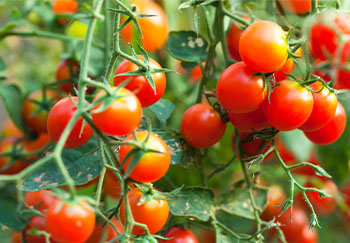
Sweet Peppers
Like tomatoes, peppers are widely enjoyed by most but are expensive to continually buy. The good news is they can easily be grown in a pot on a windowsill or balcony if that’s all the space you have. They have similar needs to tomatoes such as sunlight and warmth, regular watering, a good compost, and ongoing feeding. But if you can take care of that, a single plant will continually provide peppers throughout the growing season to enjoy. Aim to grow a few plants for a plentiful supply. Like tomatoes, peppers can also be grown from seed or young plants can be purchased from garden centres. Our handy guide to growing peppers at home in containers will help you to get started.
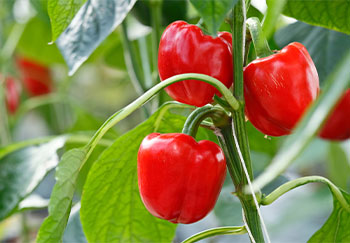
Beans
Beans are a popular vegetable to grow in gardens, as they are easy to grow and provide a good yield. There are many different types of beans you can choose to grow, including green beans, runner beans, and broad beans, and they can be grown in a variety of conditions. Beans are a hardy crop that can tolerate a range of soil types and can be grown in containers, raised beds, or directly in the ground. They also require little maintenance, aside from regular watering and some occasional pruning. With just a little bit of attention and care however, beans can produce a significant yield of fresh, nutritious vegetables that are delicious in a variety of dishes, from salads to soups to casseroles.
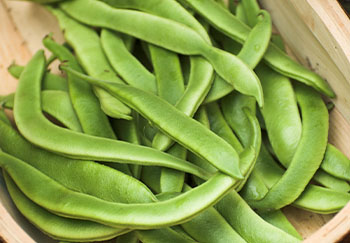
Cucumbers
Cucumbers are also very easy to grow and just a couple of plants will give a good yield throughout the growing season. They need a lot of sunlight, but they can tolerate a variety of soil types and can be trained to grow vertically to save space. Cucumbers can be started from seeds or seedlings, and they require regular watering to keep the soil moist. With proper care, cucumbers can produce a significant yield of fresh, nutritious vegetables that are perfect for salads, pickling, or even as a refreshing snack.
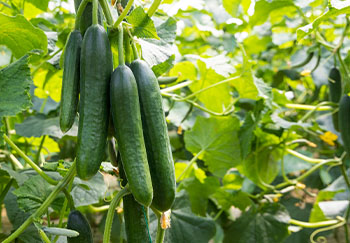
Onions
Onions are used in almost everything, literally. They’re chopped up in salads, caramelised for burgers, or as a base ingredient in sauces. They’re unbelievably versatile and incredibly easy to grow in our gardens, in the ground or in a container. They require little maintenance aside from regular watering and some occasional weeding. Onions are also relatively pest-resistant, which makes them an excellent choice for organic gardening. They can be grown from seed or sets, which are small bulbs that are planted directly in the soil. Get a little bit fancier and opt for shallots that are also just as easy to grow but have more of a sweeter and milder flavour compared to regular onions. When stored correctly onions can keep well for months and don’t take up a lot of space. We have a handy guide you can use to get started on growing onions in containers too.
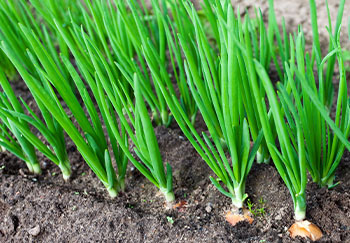
Strawberries
Up and down the country people love strawberries, we cannot get enough. But it can be £2-£4 for just a small punnet from the supermarket. If you like to have a regular supply this is a cost that can mount up very quickly. The great news is that young strawberry plants are freely available each year in our garden centres and can be grown in containers or in the ground easily. They’re quite a robust plant, but require plenty of sunlight, regular watering and a good fertiliser. They are quite tolerant of a variety of compost types and growing conditions. They’re quite hardy too – many a gardener has been surprised at the ability of this wonderful plant to bounce back after neglect or a particularly chilly and frosty winter. Plant them in spring or early summer and they can be harvested generally from June to August. Our top tip – the first year you grow them you will get some strawberries to enjoy, but the second year will provide a much better harvest. Protect your strawberries over winter and you’ll be rewarded with a bountiful and regular supply the following year. If you like the idea of growing strawberries in the garden take a look at our guide to help.
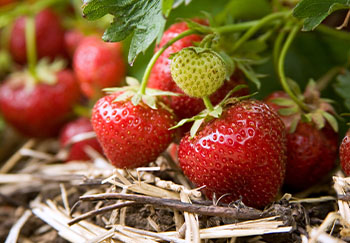
Blueberries
Blueberries are likewise quite expensive in supermarkets. With the right care a blueberry plant can survive for 20 years! This makes them an excellent choice for growing fruit in the garden for continued value for money. Blueberry plants are quite hardy and tolerant of a variety of growing conditions. Pots or containers are probably best however to start with, as they need more acidic soils, and typical garden soil isn’t acidic enough. However, whether in the ground or in soil this small hurdle can be overcome by regularly adding some organic matter around the base of the plant like pine needles, ericaceous compost, or well-rotted manure.
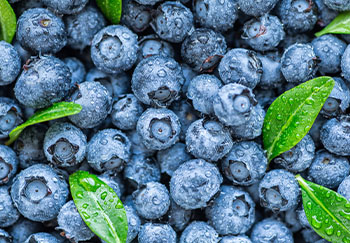
Apples
If you regularly enjoy apples, then investing in an apple tree would be worthwhile. Like blueberries they live for a long time – up to 80 years – and with some care and attention will provide fruit for many of those years. Because it is a tree, you will likely spend more initially than other items on this list, but the tree will go on to provide lots of fruit over many growing seasons for you to pick and enjoy when ripe, use in cider, apple pies, and more. For typical sized gardens, dwarf or semi-dwarf types would likely be best and planted in a spot with lots of sunlight and good drainage.
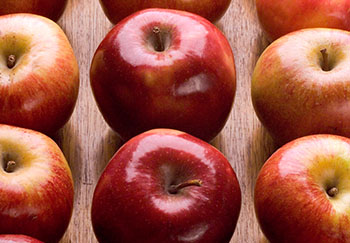
Save Money by Growing at This Time of Year
By growing your own fruit, herbs and veg at home, you can save money on groceries and enjoy fresh, healthy food straight from your garden. There’s some initial cost for what’s needed, as well as your time of course, but very quickly you’ll find it pays for itself and with a little bit of care and attention, you will be rewarded with some lovely fresh produce, all grown at home. You can’t put a price on the feeling of learning to grow some of your own food either.
So, what are you waiting for? Get your hands dirty and start growing today! Feel free to pop into any of our centres to ask for help getting started from one of our expert and friendly team members.
